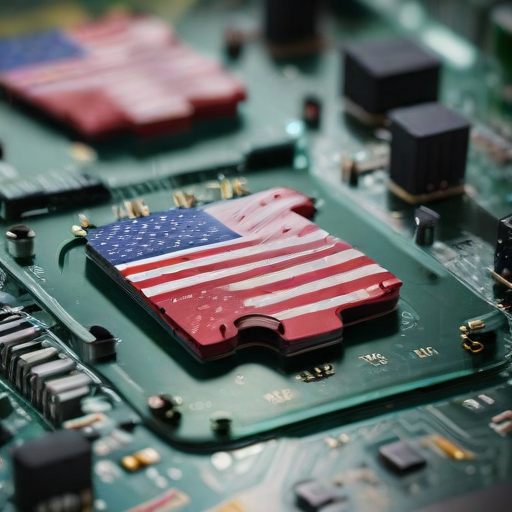As the United States deliberates on imposing stricter trade restrictions aimed at preventing advanced semiconductor technology from reaching China, Nvidia, the renowned U.S.-based chipmaker, is reportedly developing a version of its advanced artificial intelligence chips that aligns with these restrictions. According to sources cited by Reuters, Nvidia is collaborating with a Chinese distribution partner, Inspur, to introduce a new chip, tentatively referred to as the “B20,” specifically designed for the Chinese market.
The anticipated launch for the B20 chip is set for the second quarter of 2025. Although Nvidia has opted not to comment on these developments, the company’s proactive approach reflects its adaptability in a rapidly changing market landscape.
Nvidia currently offers three chips that comply with existing U.S. export controls. Notably, the H20 chip was introduced at a reduced price to enhance its competitiveness against similar products from the domestic competitor, Huawei. Reports indicate that sales of the H20 chip have surged, with expectations of over one million units sold in China this year, generating approximately $12 billion in revenue, despite the ongoing U.S. trade restrictions.
However, the future of Nvidia’s H20 chips is uncertain, given the possibility of further U.S. trade measures. Analysts from Jefferies have indicated that the annual review of semiconductor export controls in October may lead to a ban on the H20 chip for sale to China. Such restrictions could manifest as product-specific bans or changes in computing power and memory capacity limits.
Moreover, analysts suggested that the U.S. government could extend export controls to other countries in the region, such as Malaysia, Indonesia, and Thailand, or even to overseas Chinese enterprises, although implementation could pose challenges.
This situation underscores the resilience and innovation in the technology sector. Nvidia’s dedication to compliance and its efforts to tailor products for diverse markets demonstrate a forward-thinking strategy. As global trade dynamics continue to evolve, the company is positioning itself to navigate and thrive in these complex landscapes.
In summary, Nvidia is taking proactive steps to adapt to changing trade regulations by developing the B20 chip for the Chinese market, while also seeing growth in current sales despite restrictions. The company exemplifies adaptability in a challenging environment, paving the way for future innovation in the semiconductor industry.
